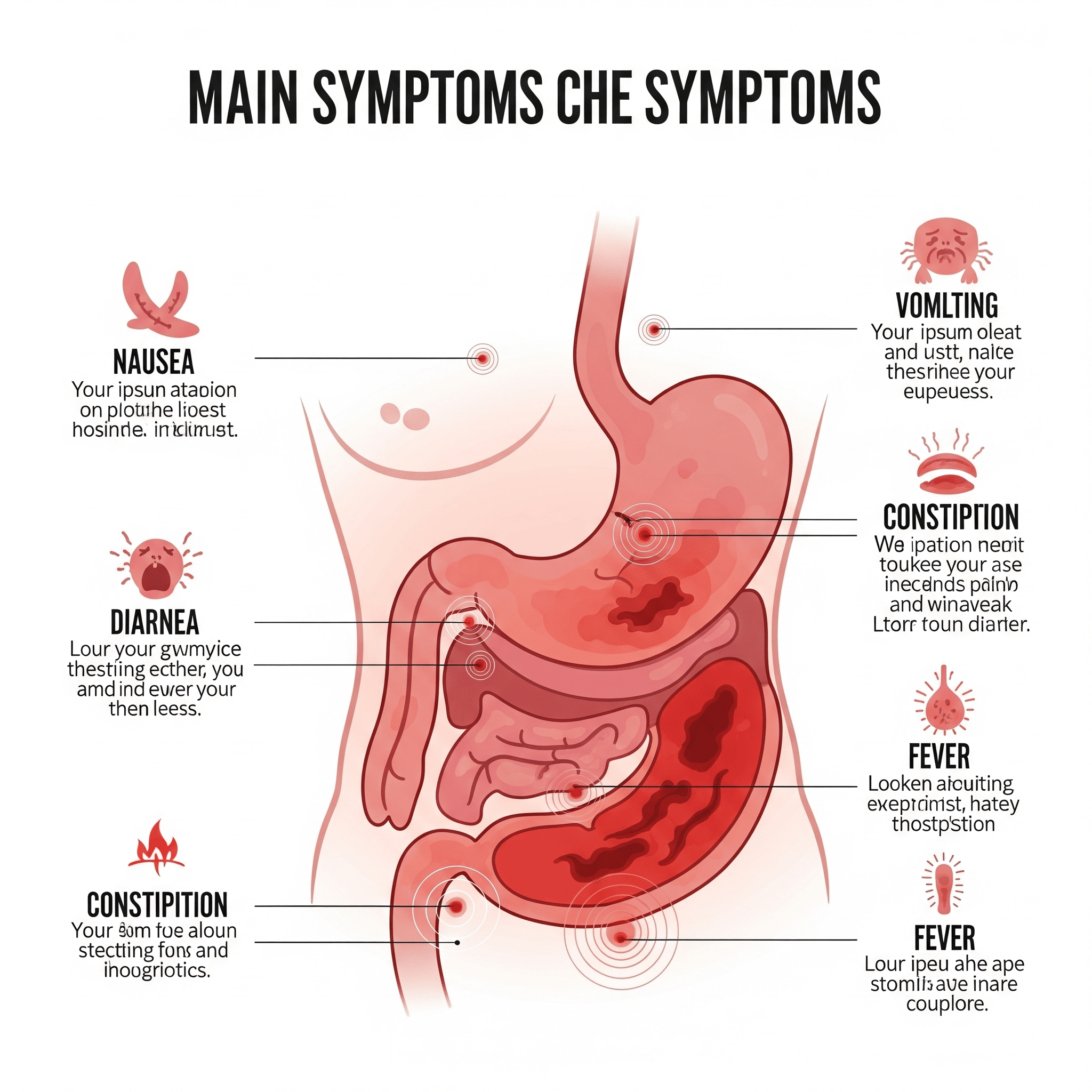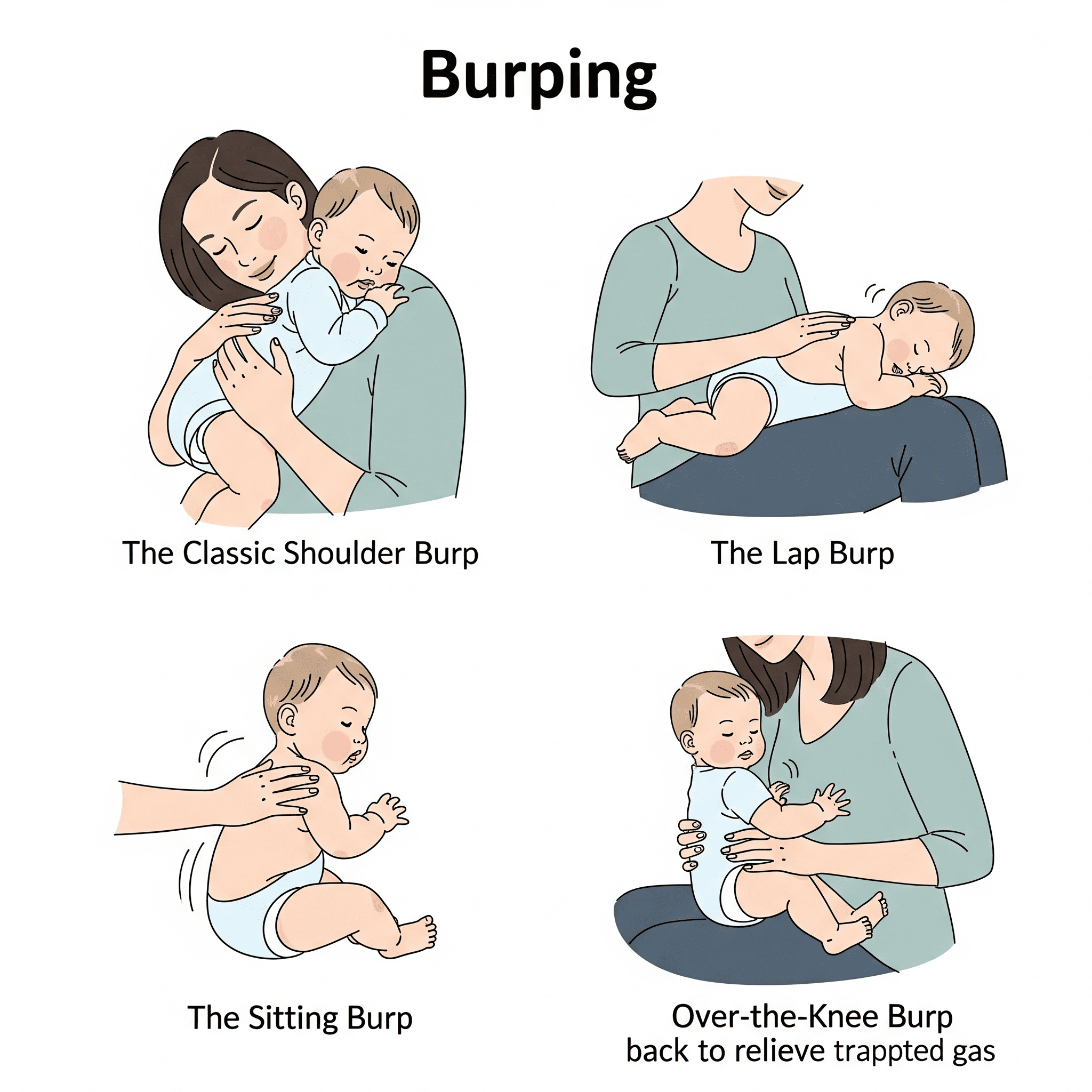"Waaah! Here we go again..." Are there many parents out there who can't sleep due to their baby's piercing cries late at night? 😭 You might be worried sick, wondering if your baby is suffering from the dreaded 'colic.' It's frustrating not knowing why they're crying or how to make it stop. But don't worry too much! With this guide, you can win the war against relentless colic. From understanding what colic is to its causes and effective solutions, we've got everything new parents need. Shall we embark on this colic-conquering journey together? 💪
🤷♀️ What Exactly is Baby Colic (Infantile Colic)?
Baby colic is medically known as 'Infantile Colic'. It's diagnosed when a healthy baby cries excessively for more than 3 hours a day, more than 3 days a week, for over 3 weeks, without any apparent medical reason. It commonly starts a few weeks after birth and often resolves spontaneously by the time the baby is 3 to 4 months old. While it's a common issue, affecting about 1 in 5 infants worldwide, it's an incredibly challenging time for parents.
A baby crying from colic is very difficult to soothe, and the symptoms tend to worsen in the late afternoon or evening. Don't blame yourself thinking, "Why is this happening to my baby?" Colic is not caused by poor parenting.
"Colic isn't an illness. It's like a growing pain as your baby adjusts to the world. Don't blame yourself or get too stressed." – Dr. Emily Carter, Pediatrician (Fictional)
😥 Could My Baby Have Colic? Key Symptoms Checklist
All babies cry to express discomfort. However, crying due to colic shows some distinct differences from typical crying. Use the checklist below to assess your baby's condition.
- Cries suddenly and intensely for no apparent reason.
- Is difficult to soothe or comfort.
- Clenches fists and face turns red while crying.
- Pulls legs up to the tummy or arches back, writhing.
- Tummy seems bloated or makes gurgling sounds, as if gassy.
- Symptoms usually appear at a specific time of day (especially late afternoon or night).
- Seems perfectly fine and calm once the crying stops.
Of course, not all these symptoms automatically mean colic. It could be due to other discomforts like hunger, a wet diaper, or sleepiness. It's important to observe carefully. However, if these symptoms are recurrent, colic might be suspected.

🤔 Why Does Colic Happen? Exploring Various Causes
Unfortunately, the exact cause of colic is still not clearly understood. However, several potential factors are often discussed.
| Suspected Cause | Description |
|---|---|
| Immature Digestive System | A baby's digestive system is still developing, making it less efficient at digesting food and expelling gas. This can lead to gas buildup and discomfort. |
| Swallowing Air During Feeding | If a baby swallows too much air while feeding, it can cause gas and discomfort. This is more common if the bottle nipple size is incorrect or if the baby doesn't latch properly during breastfeeding. |
| Food Sensitivities or Allergies | Certain foods in a breastfeeding mother's diet (e.g., dairy, caffeine, spicy foods) or components in formula (e.g., cow's milk protein) can trigger colic in sensitive babies. |
| Gut Bacteria Imbalance | An imbalance between beneficial and harmful bacteria in the baby's gut might affect digestion and contribute to colic, according to some research. |
| Overstimulation or Stress | Babies sensitive to excessive environmental stimuli (loud noises, bright lights) or stress may experience colic. |
| Immature Nervous System Regulation | A baby's nervous system is not fully developed, and they may lack the ability to self-soothe, leading to excessive crying in response to minor discomforts. |
Various factors can act in combination. The important thing is to remember "It's not my fault" and focus on finding ways to comfort your baby rather than dwelling on the cause.
🩺 Could It Be Something Else? When to Visit the Doctor
Most cases of colic resolve naturally over time, but a baby's crying can sometimes be a sign of another illness, so caution is necessary. It's essential to see a pediatrician if you notice any of the following:
- Fever, lethargy, or other signs of illness.
- Persistent vomiting or blood in vomit.
- Diarrhea, or blood or mucus in stool.
- Poor weight gain or weight loss.
- Baby is unusually fussy or inconsolable.
- Colic symptoms persist beyond 4-5 months of age.
Rather than self-diagnosing, it's crucial to get an accurate diagnosis from a professional to rule out other conditions and receive appropriate advice. If you're even slightly worried, don't hesitate to visit the doctor!
Remember This!
Colic is common, but it could also be a sign of something else. If your baby seems different than usual or you have any concerns, don't hesitate to see a doctor and consult a professional! 🧐
🚀 Top 5 Effective Strategies to Beat Colic!
While there's no magic cure for colic, there are several methods that can help reduce your baby's discomfort and soothe them. There's no one-size-fits-all solution, but try these one by one to find what works best for your little one.
1. Check Feeding Methods and Burp Thoroughly! 🍼
It's important to help your baby swallow less air during feedings.
- Breastfeeding: Ensure a deep latch covering the areola, and try different nursing positions.
- Bottle-feeding: Hold your baby upright during feeds, and consider using anti-colic bottles or nipples. Make sure the nipple hole size is appropriate.
- Burping: Always burp your baby during and after feeds to release trapped gas. Hold your baby against your shoulder or sit them on your lap, gently patting or rubbing their back.

2. Gentle Tummy Massage and Warm Compress 💆♀️
Gently massaging your baby's tummy with warm hands can help release gas and comfort them.
- Clockwise Massage: Gently massage in a clockwise circular motion around the baby's navel.
- "I Love You" Massage: Trace an "I" down the baby's right side, an "L" across the belly, and an inverted "U" down the left side.
- Leg Exercises: Gently hold your baby's legs and move them in a bicycling motion.
- Warm Compress: Placing a warm (not hot!) washcloth or compress on the baby's tummy can also be soothing.
Massage is most effective when your baby is calm and happy. Avoid it when they are very hungry or full.
3. Environmental Changes and White Noise 🎶
Sometimes, changing the environment or playing certain sounds can help calm a baby.
- Holding or Rocking: Hold your baby and gently rock them, or take a short walk outdoors.
- White Noise: Monotonous, repetitive sounds like a vacuum cleaner, hairdryer, or heartbeat (white noise) can provide comfort. Play it at a low volume.
- Reduce Stimulation: When colic is severe, minimize environmental stimuli like bright lights or loud noises.
4. Diet Adjustments for Breastfeeding Moms & Formula Changes 🥣
If food sensitivity is suspected, these methods can be tried. However, it's best to consult a professional before making drastic changes.
- Breastfeeding Moms: Temporarily eliminate potential trigger foods (dairy, caffeine, spicy foods, certain vegetables like onions and cabbage) from your diet and observe your baby's reaction. If it helps, you can reintroduce them one by one to identify the culprit.
- Formula-fed Babies: The current formula might not suit your baby. Consider switching to a special, easily digestible formula (hydrolyzed or partially hydrolyzed). Always consult your doctor or pharmacist first.
Wait a minute! While probiotics are sometimes mentioned for colic, they don't work for every baby, and more research is needed. It's best to consult a professional before use.
5. Various Comforting Techniques 🤗
There are other small tips that can help soothe your baby.
- Pacifier: Satisfying the sucking reflex can provide comfort.
- Warm Bath: A warm bath can relax your baby and make them feel comfortable.
- Swaddling: Wrapping your baby snugly in a blanket can mimic the security of the womb and help calm them.
- "Colic Curl" Position: Holding your baby and gently curling their back while applying slight pressure to their tummy can be helpful.
The key is not to give up and to try different methods to find your baby's favorite soothing technique! 😊
🛡️ Know and Prepare: Colic Prevention Tips
While colic cannot be 100% prevented, there are steps you can take to reduce its likelihood.
- Maintain Proper Feeding Posture: Ensure your baby swallows minimal air.
- Regular Feeding Intervals: Avoid overfeeding or feeding too frequently; feed according to your baby's cues.
- Sufficient Burping After Feeds: Always burp your baby after each feeding.
- Create a Stress-Free Environment: Make the surroundings calm and stable for your baby.
- Mother's Health Management: If breastfeeding, the mother's health and diet are also important.
The best prevention is to care for your baby with love and pay attention to even the smallest changes. 💕
👨👩👧 Parents, Remember This! (Mental Well-being & Professional Help)
When you're exhausted by your baby's crying, taking care of your own mental well-being is crucial.
- No Guilt: Baby colic is no one's fault. Don't blame yourself.
- Don't Suffer Alone: Talk to your partner, family, or friends about how you feel and ask for help.
- It's Okay to Take a Break: If your baby is safe, step away for a moment to take deep breaths, stretch, or have some personal time.
- Sufficient Rest and Nutrition: Parents need to be healthy to take care of their baby. Eating well and sleeping well are important.
- Seek Professional Help: If you're overwhelmed or worried, don't hesitate to seek help from pediatricians, health centers, or parenting support groups.
Remember, you are not alone! This difficult period will eventually pass. 💪

💖 Finally: Colic is Temporary, Love is Forever
Baby colic is a tough time for both parents and babies, but it usually disappears magically within a few months. To get through this period, you need patience, a positive mindset, and, most importantly, unwavering love for your baby.
We hope the information provided today offers some comfort and help to parents struggling with colic. We cheer for all babies reading this to grow up healthy and happy! The day your crying baby smiles brightly at you will come soon. Stay strong! 🌈
